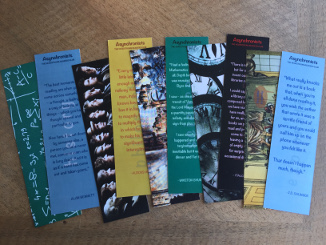Review: The Evolution of Cooperation by Robert Axelrod
Axelrod had a very nice idea for an experiment. Take a much-studied behavioural model – the (iterated) Prisoner’s Dilemma from game theory – and run a computer tournament between alternative strategies to try to understand the mechanisms driving cooperation.
Programs of various degrees of sophistication and complexity were submitted from experts in the field and the laurels were awarded to perhaps the least sophisticated and least complex among them. The entire strategy is clear from its name: TIT FOR TAT.
The book describes the experiment, shows how the Prisoner’s Dilemma is a reasonable model for many kinds of human interactions and explores the reasons why TIT FOR TAT was so successful. It shows, for example, soldiers discovering the strategy for themselves during trench warfare in World War One without any face-to-face negotiation.
When run in populations, it was shown to be evolutionarily stable. In other words, when discovered and entered even in small numbers into the population, it grows in influence, driving out more selfish strategies.
A second book delved deeper and an almost-as-simple program – TIT FOR TWO TATS – emerged as an interesting alternative strategy.

 Our May meeting convened this morning; our fourth, still enjoyable and well attended. We celebrated our continued existence with the launch (!?) of our bookmarks. (One can’t help wondering if champagne flutes would not have been more appropriate 🙂 ).
Our May meeting convened this morning; our fourth, still enjoyable and well attended. We celebrated our continued existence with the launch (!?) of our bookmarks. (One can’t help wondering if champagne flutes would not have been more appropriate 🙂 ). Le Carré is always great and, of course, we all know parts I and III from the incredible BBC series of the late 70’s when George Smiley became forever Alec Guiness, but there is nothing quite like reading it. And I didn’t know the Schoolboy, Jerry Westerby; what an incredible and inscrutable character!
Le Carré is always great and, of course, we all know parts I and III from the incredible BBC series of the late 70’s when George Smiley became forever Alec Guiness, but there is nothing quite like reading it. And I didn’t know the Schoolboy, Jerry Westerby; what an incredible and inscrutable character!
 However the most daunting (800 pages) but immensely satisfying of the three books is Roberts’ amazing biography. Where I expected to be affronted by wild ambition, cruelty and arrogance, I encountered Enlightenment Man. Yes, he was a military genius, but that’s of little interest to me. He was that thing, a benevolent dictator, which probably cuts little ice among 21st century liberals. The thing is: he lasted long enough (16 years) to establish the ideals of the French Revolution which had been subverted in the Reign of Terror so that even after the restitution of the monarchy, they couldn’t be undone. This book makes it clear it was the genius of Napoleon and his ability to be interested in the minutiae of his world that allowed him create a legacy that endured. The most amazing discovery for me was his charisma and generosity. I liked him, most of the time.
However the most daunting (800 pages) but immensely satisfying of the three books is Roberts’ amazing biography. Where I expected to be affronted by wild ambition, cruelty and arrogance, I encountered Enlightenment Man. Yes, he was a military genius, but that’s of little interest to me. He was that thing, a benevolent dictator, which probably cuts little ice among 21st century liberals. The thing is: he lasted long enough (16 years) to establish the ideals of the French Revolution which had been subverted in the Reign of Terror so that even after the restitution of the monarchy, they couldn’t be undone. This book makes it clear it was the genius of Napoleon and his ability to be interested in the minutiae of his world that allowed him create a legacy that endured. The most amazing discovery for me was his charisma and generosity. I liked him, most of the time.